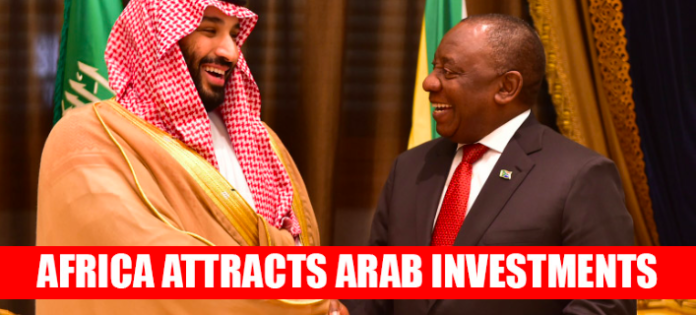The Gulf countries, also known as the Gulf Cooperation Council (GCC) countries, which include Bahrain, Kuwait, Oman, Qatar, Saudi Arabia, and the United Arab Emirates (UAE), have had a significant impact on the African economy in recent years. Here are some ways in which the Gulf countries have influenced the African economy:
Foreign Direct Investment (FDI)
Gulf countries have been major sources of FDI for African countries. They have invested in various sectors such as infrastructure, real estate, telecommunications, energy, and agriculture. This has helped African countries to finance and develop critical projects, create employment opportunities, and boost economic growth.
Trade and Export Markets
The Gulf countries have become important trade partners for African countries. African countries export a significant amount of goods and services to the Gulf countries, including oil, minerals, agricultural products, and labor. The Gulf countries provide a valuable export market for African countries, helping them diversify their export base and earn foreign exchange.
Remittances
African migrant workers in the Gulf countries send significant remittances back to their home countries. These remittances play a crucial role in supporting the economies of African countries, as they contribute to household income, consumption, and investment. Remittances also help alleviate poverty and improve living standards in many African communities.
Development Assistance
Gulf countries have provided development assistance to African countries in the form of grants, loans, and aid. This assistance has supported various sectors, including education, healthcare, infrastructure, and agriculture, and has contributed to the overall development of African economies.
Tourism
Gulf countries have emerged as important tourism markets for African countries. Gulf tourists visit African countries for leisure, business, and medical purposes, contributing to the growth of the tourism industry and generating revenue for the local economies.
Infrastructure Development
Gulf countries have been involved in various infrastructure development projects in Africa, including building roads, ports, airports, and telecommunications networks. These infrastructure projects have helped improve connectivity, trade, and investment opportunities in African countries, contributing to economic growth and development.
However, it’s important to note that the impact of Gulf countries on the African economy has not been without challenges. Issues such as land grabbing, labor exploitation, environmental concerns, and cultural differences have arisen in some cases, highlighting the need for responsible investment and sustainable development practices. Additionally, the economic relationship between Gulf countries and Africa has been influenced by geopolitical factors, global economic trends, and changing policies, which can impact the extent and nature of their economic engagement.
In conclusion, the Gulf countries have had a significant impact on the African economy through investment, trade, remittances, development assistance, tourism, and infrastructure development. While this engagement has brought economic benefits to African countries, it’s important to ensure that it is carried out responsibly and sustainably to promote inclusive and equitable economic development in Africa.































































